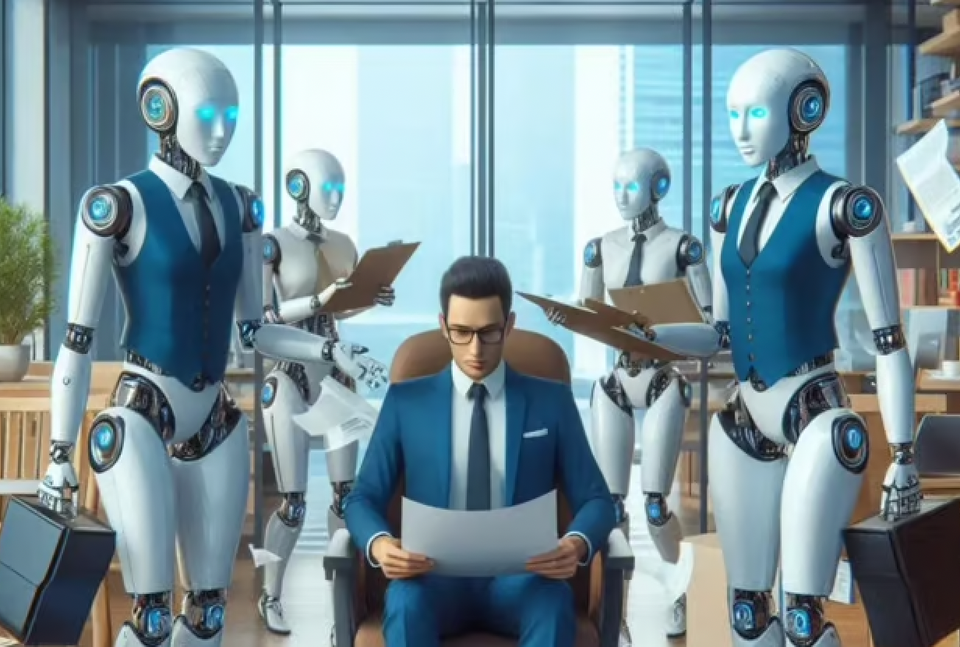Thinking like a manager

Forget technical skills; in the age of AI, management skills are the new superpower.
I was speaking with a friend recently about their (somewhat painful) transition from individual contributor to manager, and all the little things they needed to improve on to be a better manager. The conversation sparked an interesting observation: in the AI era, the skills that make you a great manager will make you a fantastic individual contributor.
Here’s what I mean. When I was starting out at Google, a request from a client for some sort of deep-dive analysis on their advertising performance would send me down a day-long spiral of data cleaning, Excel pivot-ing, chart formatting and memo writing. Now? I’m pretty sure I could spend five minutes instructing AI to process the data, another ten reviewing and providing feedback on the output, and then the balance on thoughtfully analyzing the results and drafting a memo.
This shift “up the value chain” has happened many times before. Architects used to spend countless hours at the drafting table creating detailed manual drawings. When CAD software arrived in the 1980s, it didn't just speed up drawing – it fundamentally changed the scale and scope of what architects could achieve. Suddenly, they could rapidly explore multiple design iterations, simulate structural loads, and manage vastly more complex projects. The architect's value shifted from manual precision to creative vision and system-level thinking. The spreadsheet triggered a similar transformation in finance, enabling accountants to shift from crunching numbers to providing strategic insights.
But the AI revolution feels different, and I think it's because of three things:
First, it's universal. Unlike previous tools that transformed specific industries, AI is hitting every knowledge worker simultaneously. We’re all having our "spreadsheet moment" at once.
Second, it's cognitive. Previous tools mainly automated manual or computational tasks. AI can handle tasks we once thought were uniquely human – writing, analysis, problem-solving, even creative work.
Third, it's adaptive. A spreadsheet does what it's programmed to do. AI tools learn and improve based on feedback. The relationship between human and tool is more dynamic, more collaborative than ever before.
And that brings us to my conversation with my newly promoted friend…the skills that make someone an effective manager of people are becoming crucial for individual success with AI. A good manager doesn't do all the work themselves (even if they could) – they break down work, delegate effectively, and quality-check output. Similarly, effective AI users don't just throw vague prompts at ChatGPT and hope for the best. They break problems into manageable chunks, provide clear context, give feedback, and carefully evaluate results.
The immediate implications seem obvious enough. There's a clear need for tools that help individuals manage and coordinate multiple AI agents, as well as quality-control systems that can help individuals verify outputs and refine inputs at scale. And, indeed, there are countless “agent orchestration platforms” out there seeking to solve exactly these sorts of problems.
But the second-order effects are, to my mind, more intriguing. An individual armed with AI tools will soon be able to orchestrate dozens of simultaneous workflows, each operating at machine speed. Imagine a world where everyone commands a team of tireless digital agents, capable of executing tasks with superhuman efficiency? In this reality, the bottleneck won't be technical skills or domain expertise, but the distinctly human ability to think strategically, design complex systems, and manage the interplay between human and artificial intelligence.
This raises profound questions about the future of work and the skills we'll need to thrive. And probably suggests some big opportunities for entrepreneurs as well. I’ve got some ideas of my own (like how the ability to decompose work into AI-manageable chunks will become a critical skill, and can maybe also be done by AI?), but if this is an area you’re working on, I’d love to hear from you!